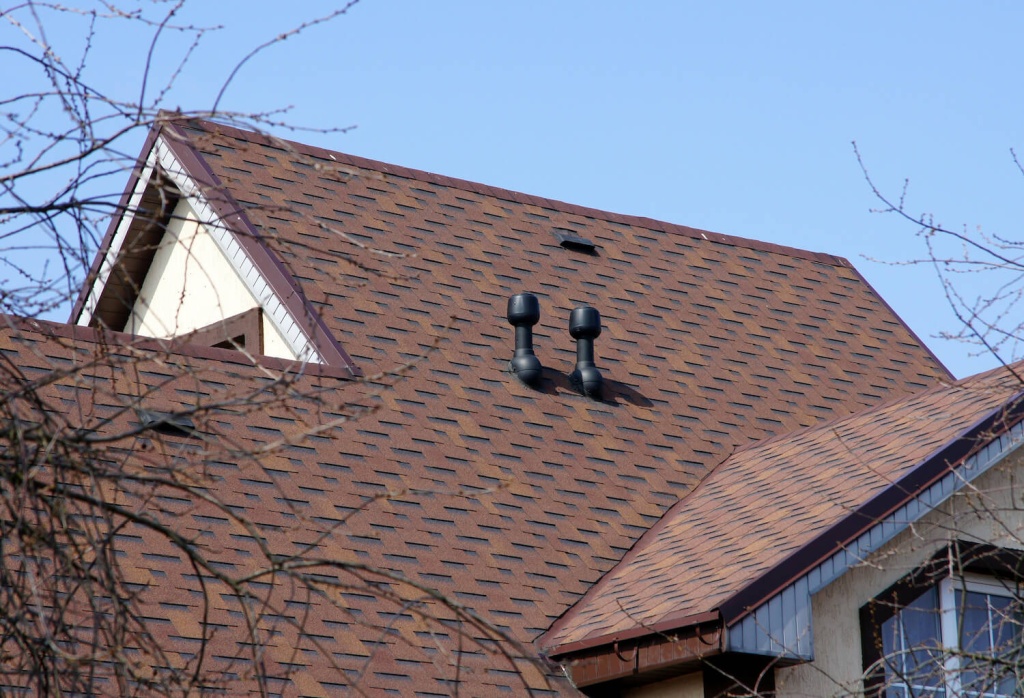A roof is arguably one of the most critical components of any home, providing shelter and protection against the elements. For homeowners in Oregon, where the weather can be unpredictable and includes rain, snow, and strong winds, proper roof maintenance is paramount to ensure the longevity and integrity of their homes. Neglecting roof maintenance can lead to costly repairs and even compromise the safety and comfort of your living space.
In this comprehensive guide, we will explore essential tips and insights on roof maintenance for homeowners in Oregon, helping you safeguard your investment and maintain a secure and beautiful home.

1. Regular Roof Inspections
Regular roof inspections are the foundation of effective roof maintenance. Ideally, homeowners should schedule professional roof inspections at least once a year. A professional roofing contractor will thoroughly assess the condition of your roof, identifying any signs of damage, wear, or potential issues.
In Oregon, where the weather can be harsh and unpredictable, roof inspections become even more crucial. Heavy rains, snow, and strong winds can take a toll on the roof over time. Identifying and addressing problems early on can prevent small issues from escalating into more significant and costly repairs.
2. Addressing Roof Leaks Promptly
Roof leaks are among the most common roof problems homeowners face in Oregon. Whether caused by heavy rainfall, melting snow, or damaged roof components, leaks can lead to water infiltration and structural damage.
If you notice water stains on your ceiling, discoloration, or signs of moisture in your attic, it is essential to address the issue promptly. Delaying repairs can exacerbate the problem and lead to mold growth and further deterioration of your roof’s integrity.
3. Cleaning Gutters Regularly
Oregon’s wet weather often leads to debris, leaves, and moss accumulating in your gutters. Clogged gutters can hinder proper drainage and cause water to back up, potentially leading to roof leaks and water damage.
Homeowners should make it a habit to clean their gutters regularly, especially before the rainy season. You can use a ladder and gloves to remove debris from the gutters, ensuring that water flows freely away from your roof and foundation.
4. Trimming Overhanging Branches
Overhanging tree branches pose a risk to your roof, especially during storms and high winds. Branches rubbing against your roof’s surface can cause shingle damage and even lead to roof leaks.
Inspect your property for any tree branches that extend over your roof and trim them back to a safe distance. This not only protects your roof but also minimizes the risk of fallen branches during severe weather.
5. Preventing Moss Growth
Oregon’s damp climate creates favorable conditions for moss growth on roofs. While moss may add a rustic charm to some homes, it can also be detrimental to your roof’s health.
Moss retains moisture, which can lead to roof damage and decay over time. To prevent moss growth, you can install zinc or copper strips along the ridge of your roof. These metal strips release trace amounts of metal that inhibit moss growth without causing harm to your roof.
6. Ensuring Proper Attic Ventilation
A well-ventilated attic is essential for maintaining the health of your roof. Proper ventilation helps regulate temperature and moisture levels in your attic, preventing condensation and mold growth.
Check your attic’s ventilation regularly to ensure that air is flowing freely. Clear any obstructions, and consider adding roof vents if your attic seems inadequately ventilated.
7. Roof Maintenance in Winter
Winter in Oregon brings snow and ice, which can be harsh on your roof. It is essential to take some extra precautions during this season to protect your roof from damage.
Keep gutters and downspouts clear of ice and debris to prevent ice dams. Ice dams occur when melting snow refreezes at the roof’s edge, causing water to back up under shingles and into your home.
Additionally, be cautious when removing ice or snow from your roof. Using sharp tools or excessive force can cause damage to shingles or the roof’s underlying structure. Instead, consider using a roof rake or hiring a professional to safely remove snow and ice.
8. Choosing the Right Roofing Materials
When it comes to roof maintenance, the choice of roofing materials can make a significant difference. Some materials are better suited to Oregon’s climate and can offer enhanced durability and protection.
Consider materials like asphalt shingles, metal roofing, or composite roofing, which are known for their resilience and resistance to moisture. Consult with a reputable roofing contractor to determine the best roofing material for your specific needs and budget.
9. Hiring Professional Roofing Contractors
While some roof maintenance tasks can be DIY, such as cleaning gutters or inspecting your attic, major repairs or replacements should be left to professional roofing contractors. These experienced professionals have the expertise and tools to handle complex roof projects safely and effectively.
When hiring a roofing contractor, research their credentials, check for customer reviews, and request a detailed estimate for the work needed. Working with a reliable and reputable roofing contractor ensures that your roof receives the highest standard of care and attention.
10. Investing in Roof Coating
Roof coatings can be a beneficial addition to your roof maintenance efforts. Roof coatings provide an additional layer of protection, sealing your roof against moisture and UV rays.
There are different types of roof coatings available, including acrylic, silicone, and elastomeric coatings. Consult with a roofing professional to determine which coating is suitable for your roof’s material and condition.
Understanding the Impact of Oregon’s Climate on Your Roof
Oregon’s climate is unique and varied, with different regions experiencing distinct weather patterns. Coastal areas receive abundant rainfall throughout the year, while inland regions can experience hot summers and colder winters with snowfall. Such diverse weather conditions can take a toll on your roof, making regular maintenance even more critical.
Rainwater is one of the primary challenges for Oregon roofs. Heavy and consistent rainfall can lead to water pooling on your roof’s surface if drainage systems are inadequate or clogged. Over time, this can lead to leaks, water damage, and even structural issues. Proper roof inspections and gutter maintenance are essential to ensure that rainwater is efficiently directed away from your home.
In colder months, snow and ice can accumulate on your roof, adding weight and causing potential stress on the structure. The freeze-thaw cycle can lead to the formation of ice dams, which block proper water drainage and result in water seeping into your home. Regular roof inspections before and after winter can help identify and address any ice dam-related concerns.
The Role of Roof Maintenance in Home Value and Insurance Coverage
Maintaining your roof not only protects your home but also has a direct impact on its value and insurance coverage. A well-maintained roof is a significant selling point if you decide to put your home on the market. Prospective buyers are likely to view a robust and well-cared-for roof as a sign of a well-maintained property.
Moreover, insurance companies often consider the condition of your roof when determining coverage and premiums. A roof that is in good condition and regularly inspected is less likely to pose insurance risks, such as leaks or structural damage. On the other hand, a neglected roof may result in higher insurance costs or even coverage denials in extreme cases.
By prioritizing roof maintenance, you not only safeguard your home and family but also protect your investment and ensure a smooth insurance process.
Budget for Roof Maintenance and Repairs
While roof maintenance is essential, it’s also essential to plan and budget for potential repairs or replacements. Regular inspections may uncover minor issues that require timely attention, preventing more significant problems down the line.
Setting aside a portion of your budget each year for roof maintenance and potential repairs is a prudent approach. Investing in preventative measures can save you money in the long run by mitigating the need for costly emergency repairs.
If your roof is nearing the end of its lifespan or has significant damage, consider working with a roofing contractor to develop a long-term roof replacement plan. Planning ahead allows you to explore roofing materials, design options, and financing choices that best suit your needs and preferences.
Conclusion
Roof maintenance is a fundamental responsibility for homeowners in Oregon. With the state’s varying climate, staying proactive about roof inspections, addressing issues promptly, and taking preventive measures are essential to preserve your roof’s condition and protect your home.
Understanding the impact of Oregon’s climate on your roof empowers you to make informed decisions about maintenance, repairs, and roofing materials. Regular inspections, cleaning gutters, addressing leaks, and maintaining proper attic ventilation are some of the crucial steps to ensure your roof remains robust and functional.
By investing in roof maintenance, you not only extend the lifespan of your roof but also enhance the value of your home and ensure that your insurance coverage remains favorable. With careful planning and budgeting, you can stay ahead of potential roofing issues and maintain a secure and beautiful home in the picturesque landscapes of Oregon. Remember, a well-maintained roof is not just a shelter over your head; it’s an investment in the long-term health and comfort of your Oregon home.










